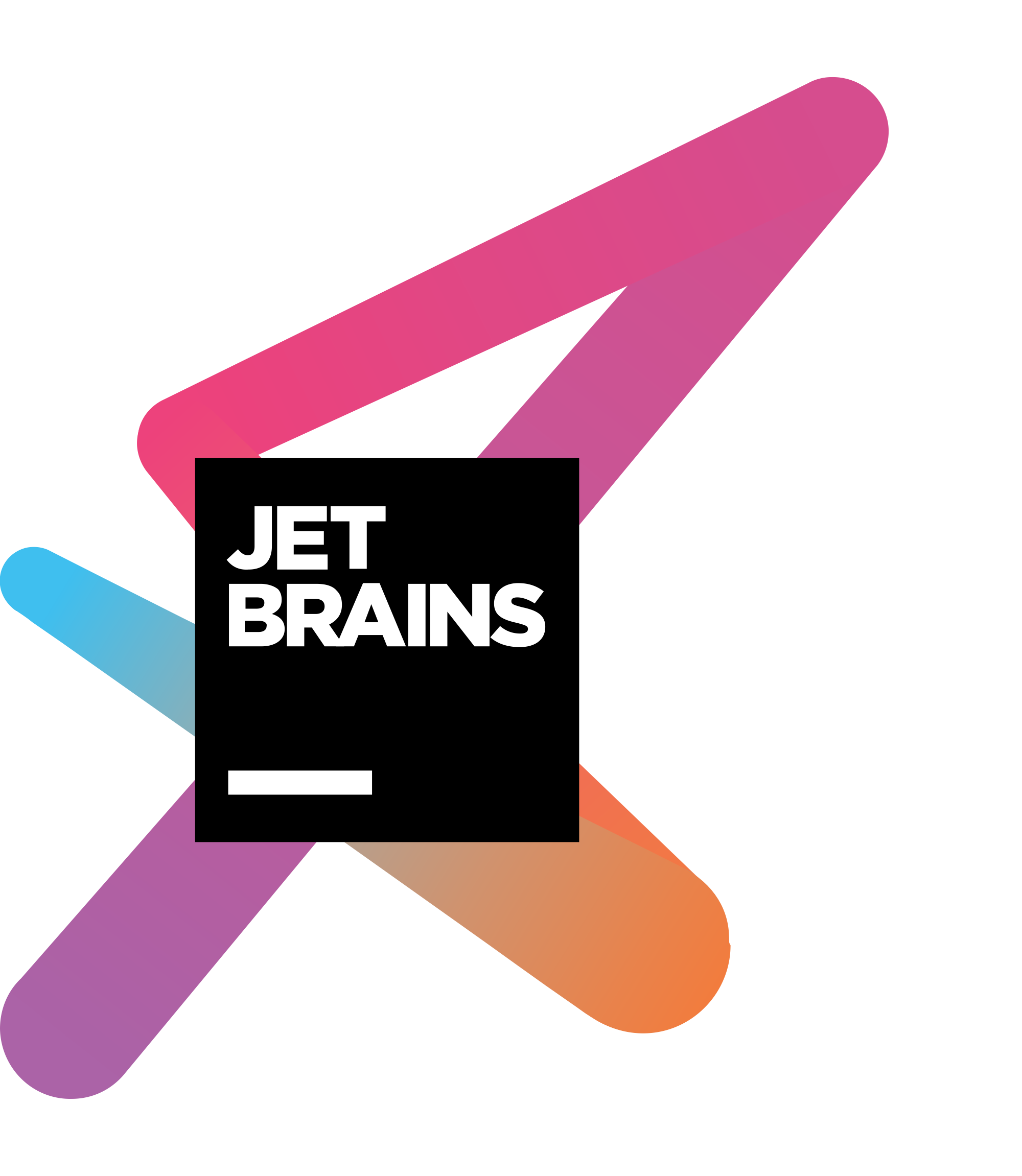Language: English | 中文
An assets picker which based on the WeChat's UI,
using photo_manager for asset implementation,
extended_image for image preview,
and provider to help control the state of the picker.
To take a photo or a video for assets, please check the detailed usage in the example, and head over to wechat_camera_picker.
All UI designs are based on WeChat 8.x, and it will be updated following the WeChat update in anytime.
- Migration Guide
- Features
- Screenshots
- Preparing for use
- Usage
- Frequently asked question
- Build failed with
Unresolved reference: R - How can I get path from the
AssetEntityto integrate withFileobject, upload or edit? - How can I change the name of "Recent" or other entities name/properties?
- Create
AssetEntityfromFileorUint8List(rawData) - Console warning 'Failed to find GeneratedAppGlideModule'
- Disable
ACCESS_MEDIA_LOCATIONpermission
- Build failed with
See Migration Guide.
- ♻️ Fully implementable with delegates override
- 💚 99% similar to WeChat style
- ⚡️ Adjustable performance according to parameters
- 📷 Image asset support
- 🔬 HEIC/HEIF Image type support
- 🎥 Video asset support
- 🎶 Audio asset support
- 1️⃣ Single asset mode
- 💱 i18n support
- ⏪ RTL language support
- ➕ Special item builder (prepend/append) support
- 🗂 Custom sort path delegate support
- 📝 Custom text delegate support
- ⏳ Custom filter options support (
photo_manager) - 🎏 Fully customizable theme
- 💻 macOS support
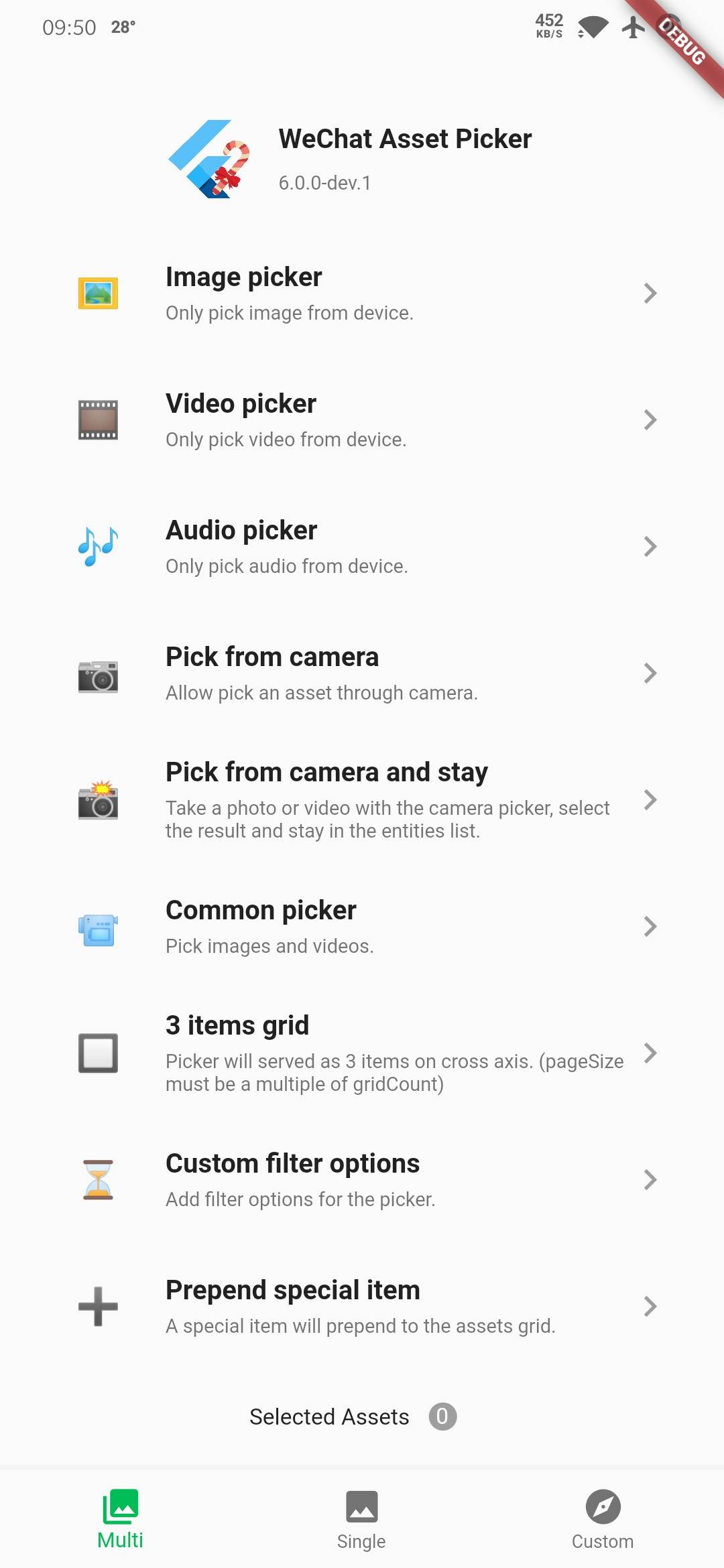 |
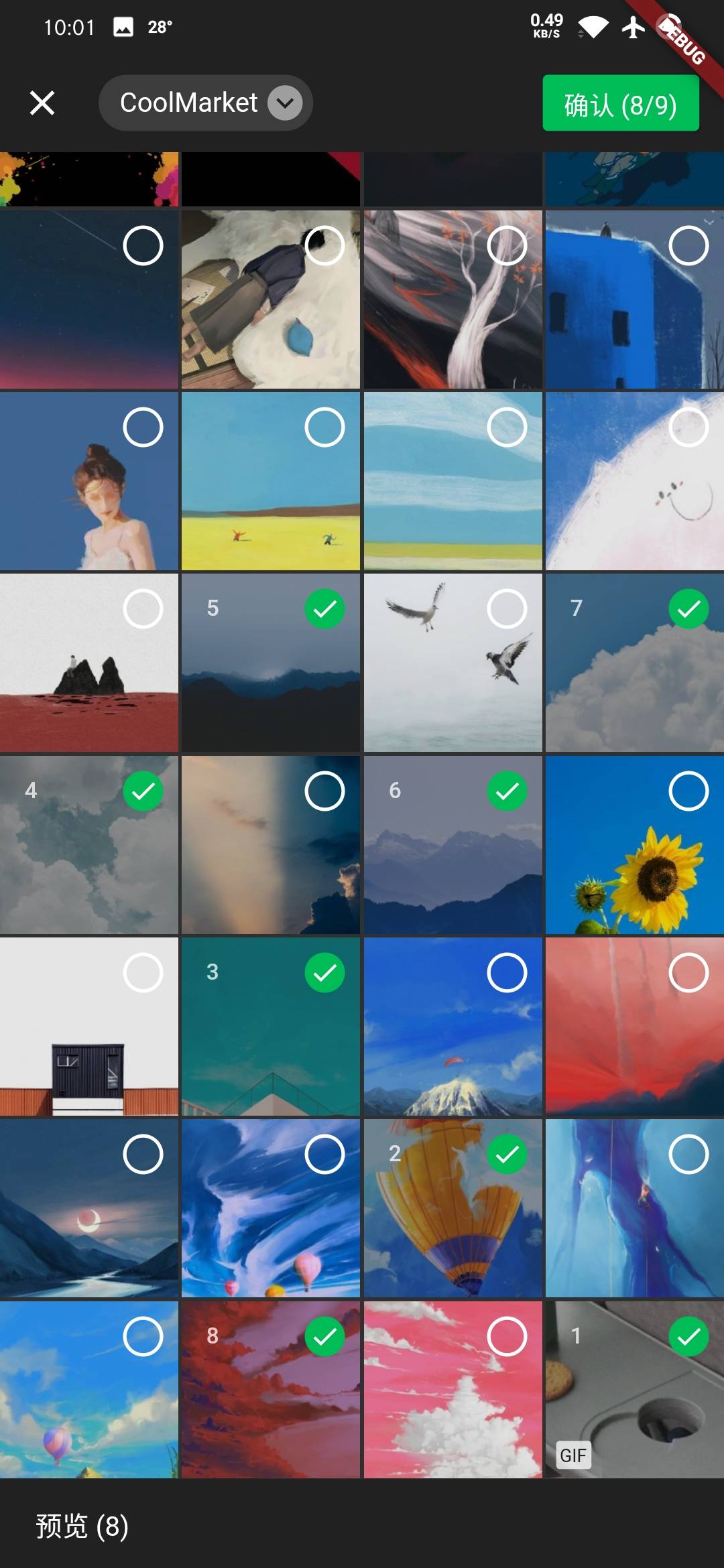 |
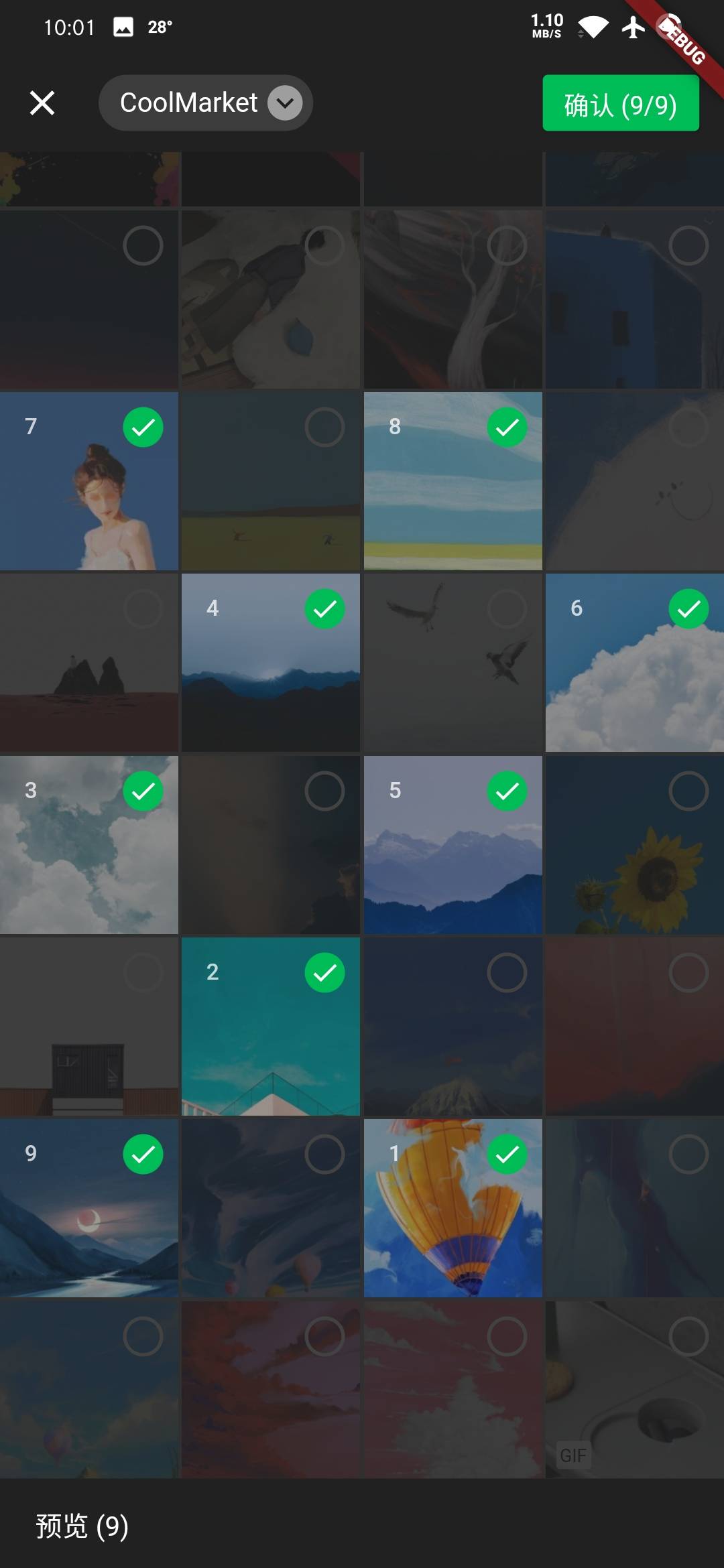 |
|---|---|---|
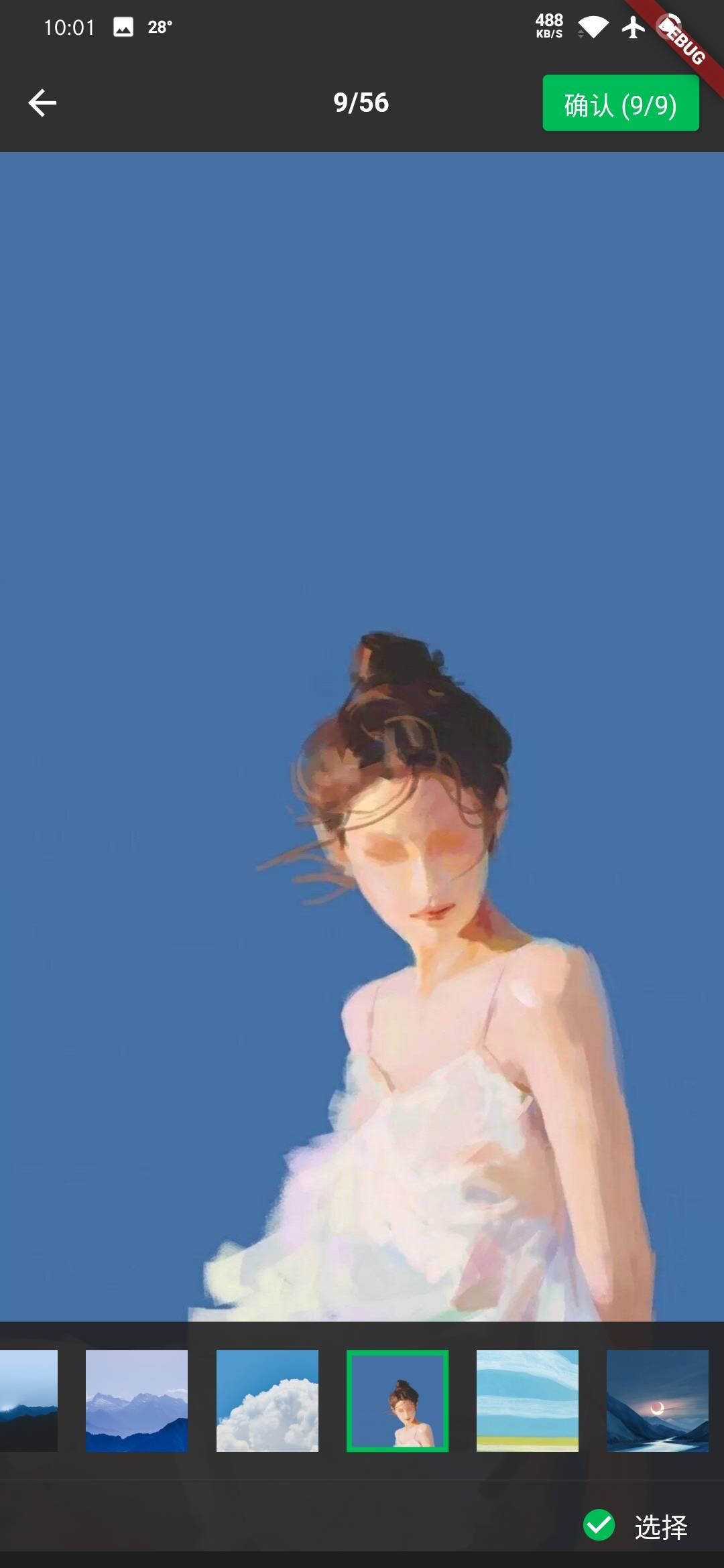 |
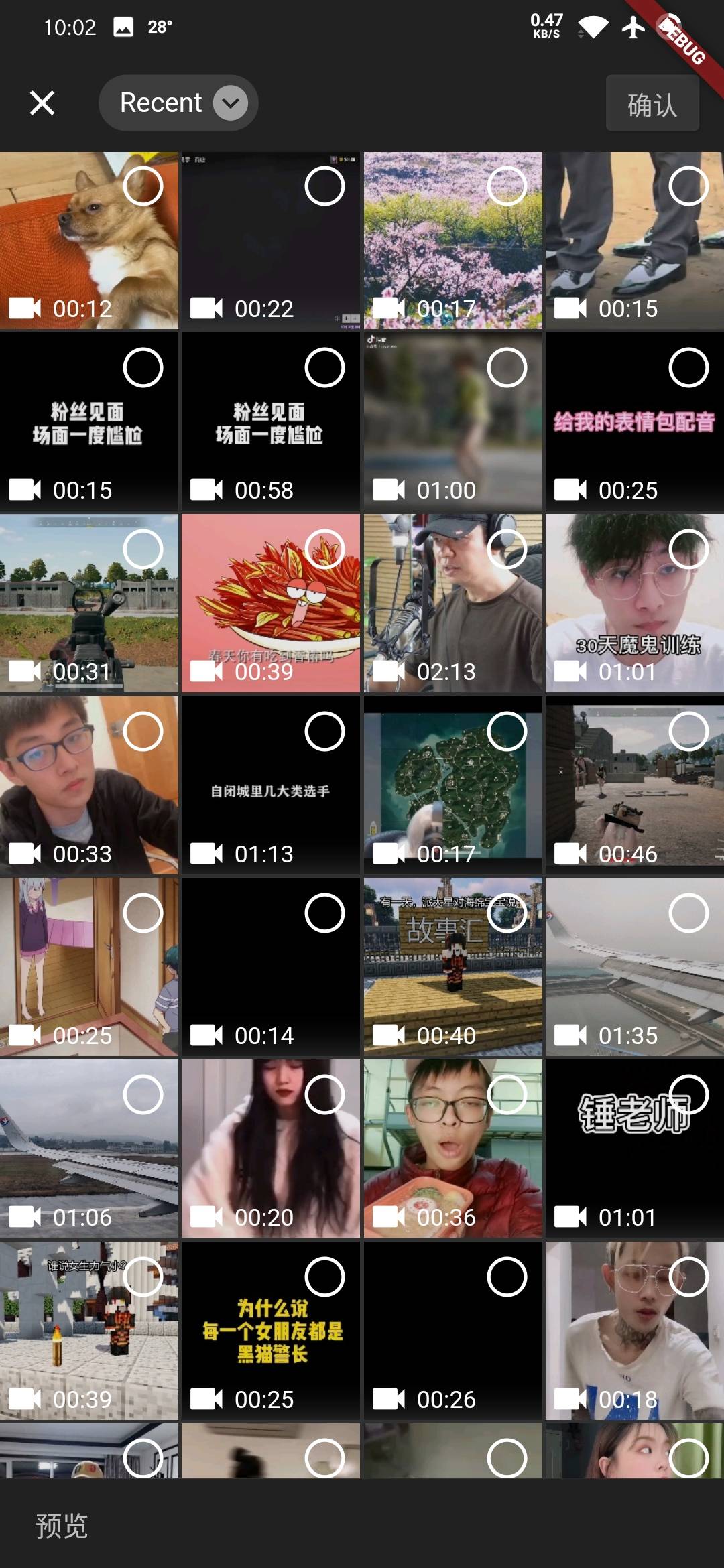 |
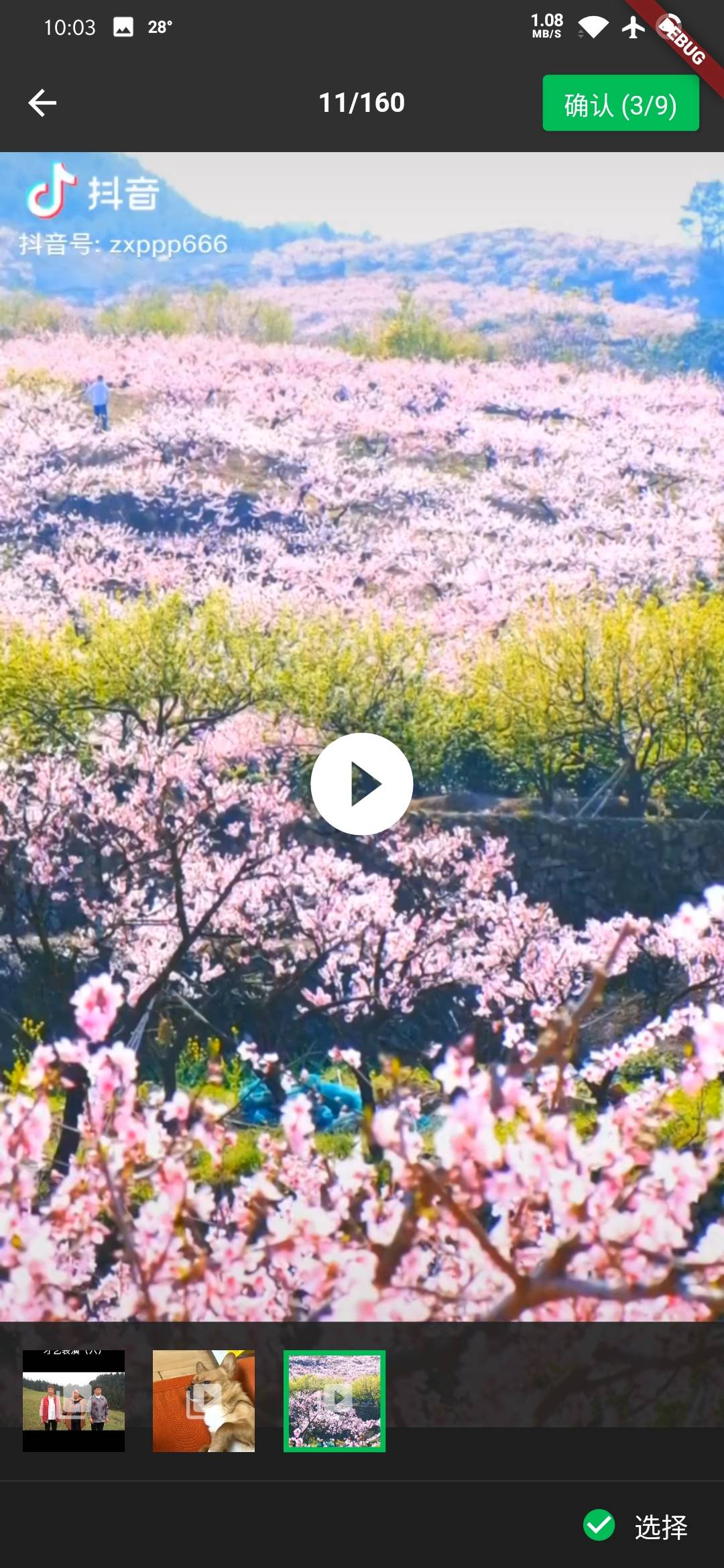 |
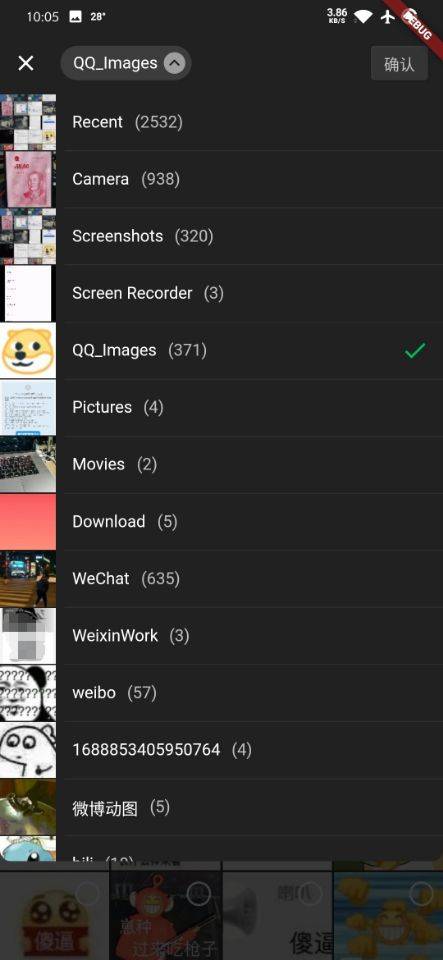 |
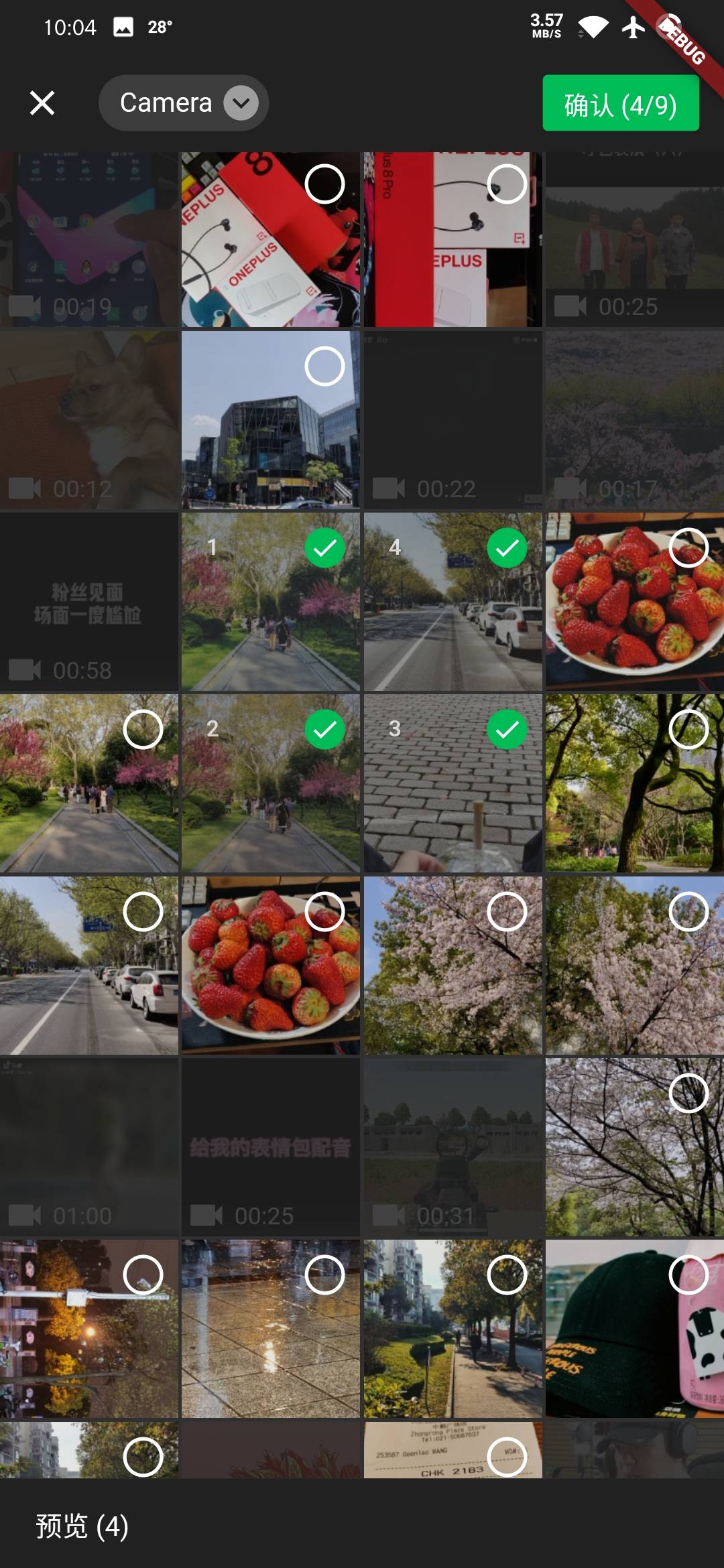 |
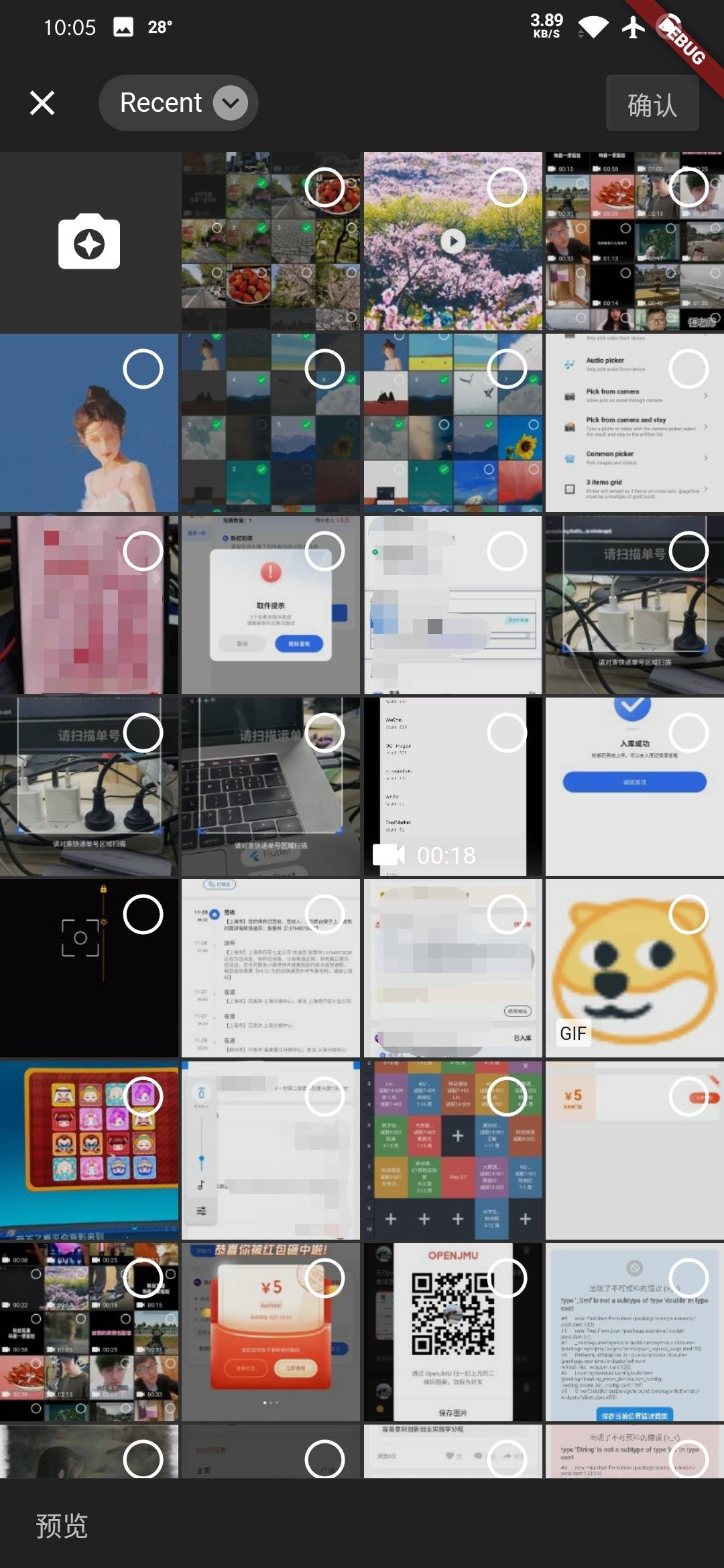 |
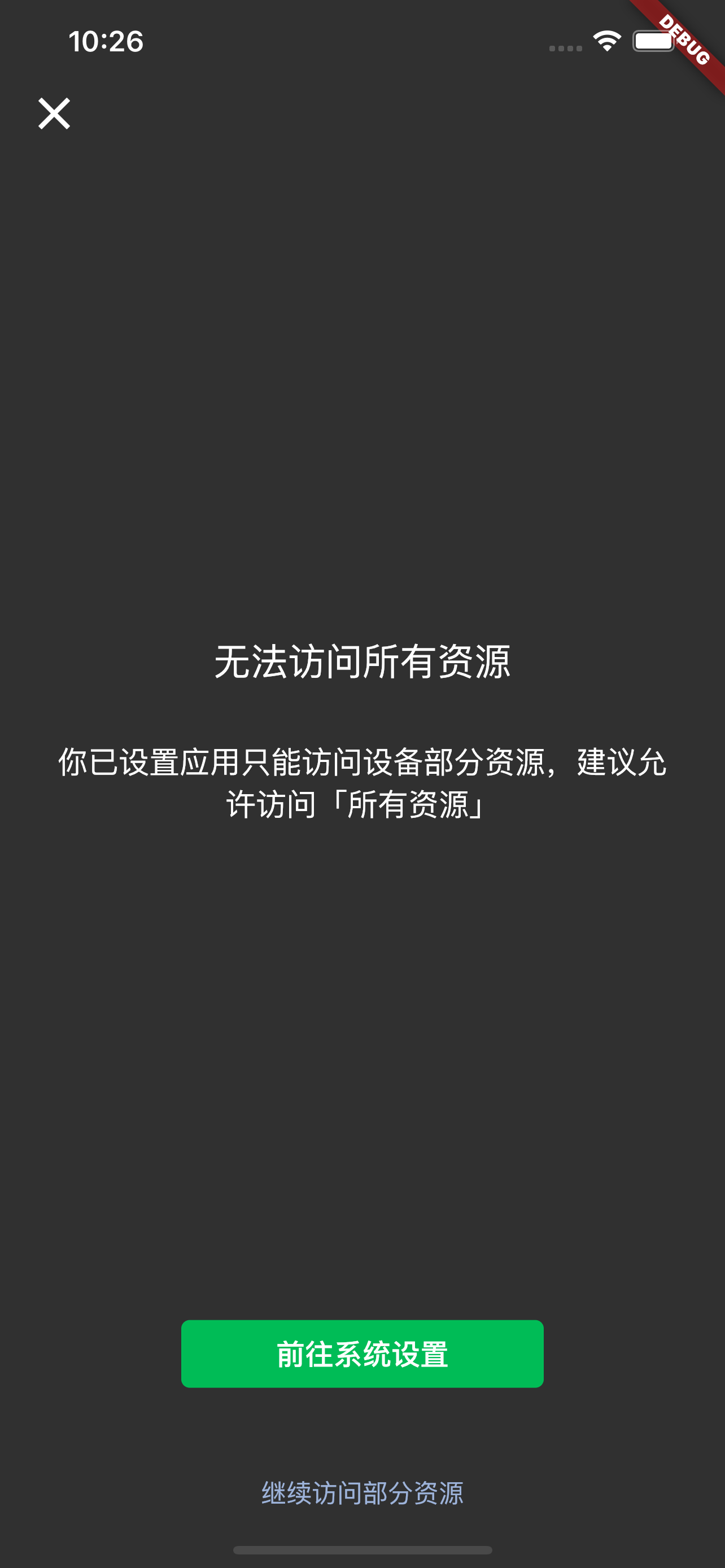 |
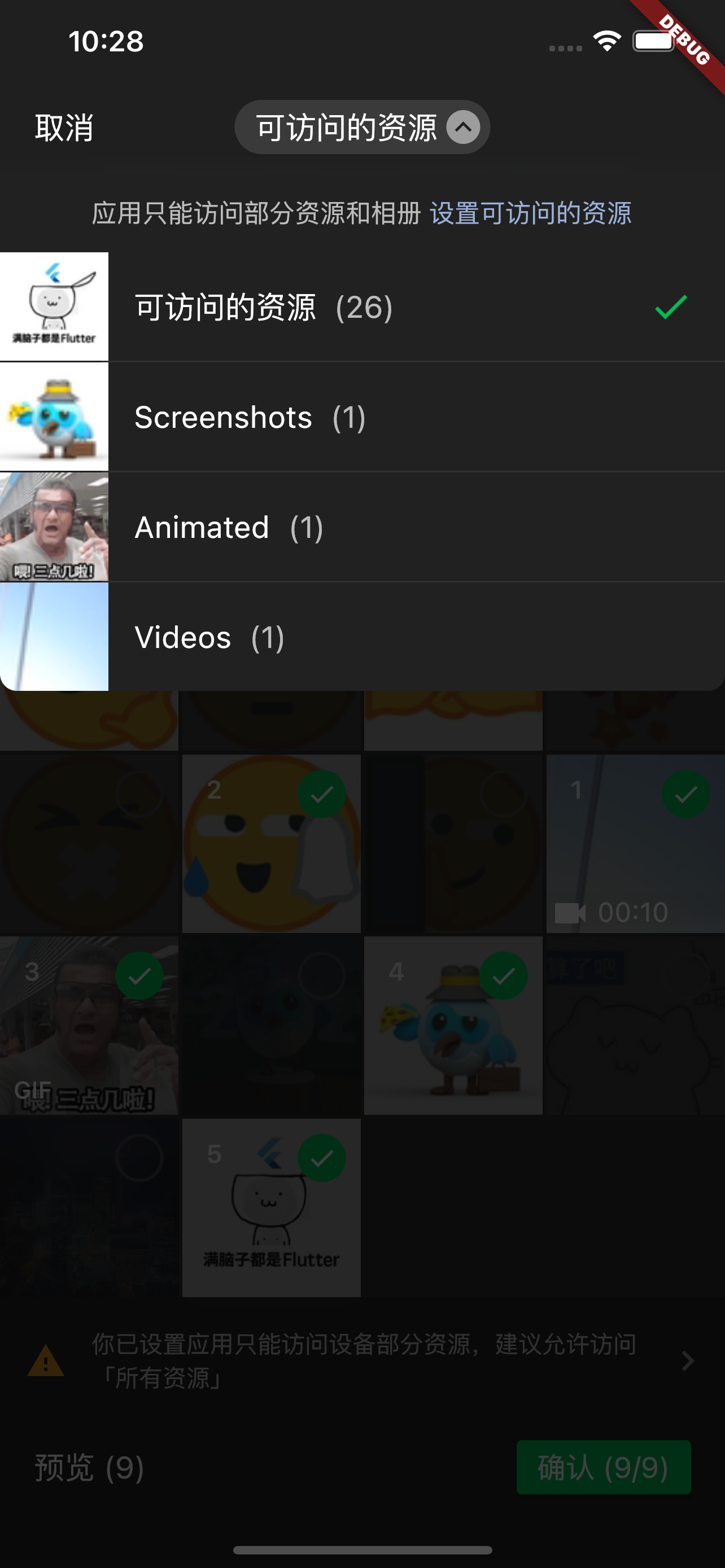 |
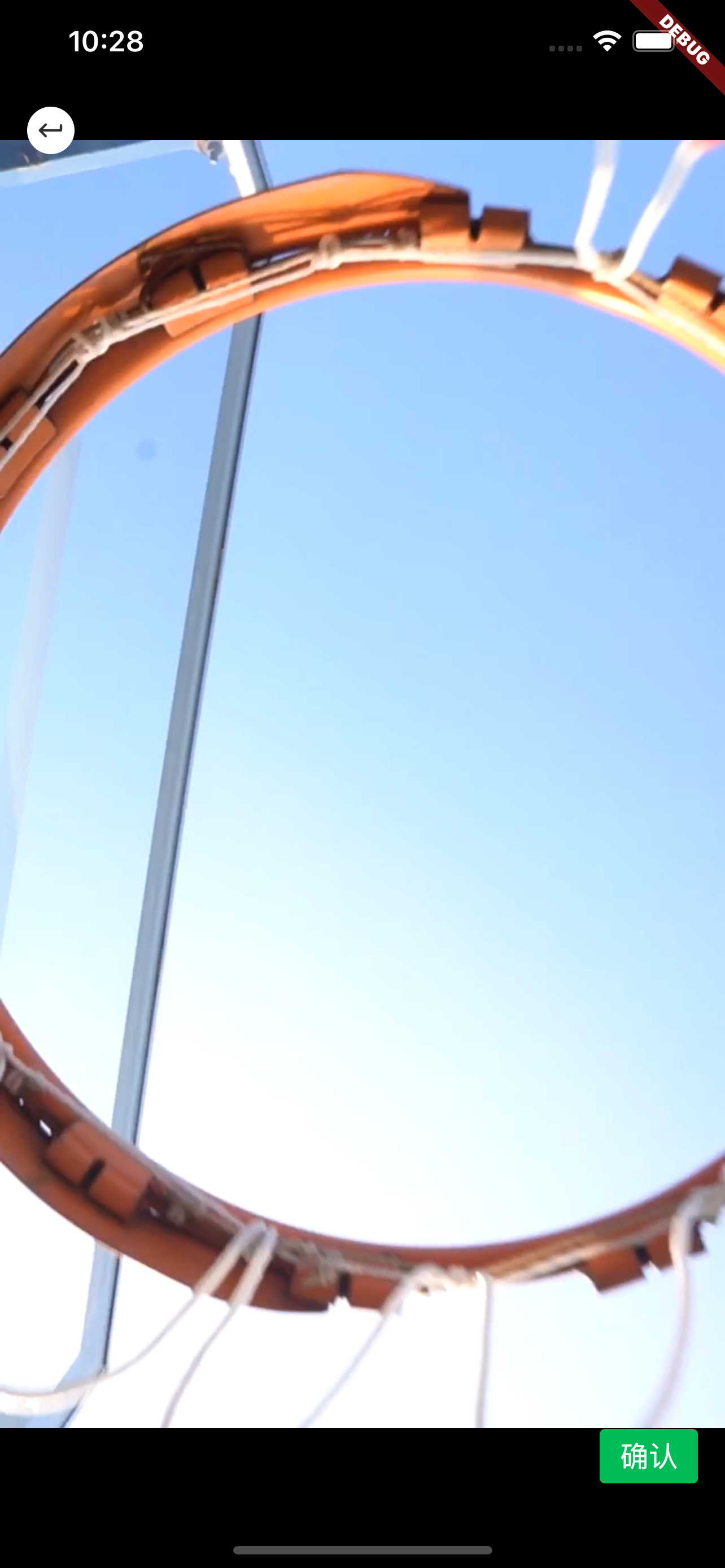 |
Although the package provides assets selection, it still requires users to build their own methods to handle upload, image compress, etc. If you have any questions about how to build them, please run the example or refer to photo_manager for API usage.
Flutter SDK: >=2.0.0 .
If you got a resolve conflict error when running flutter pub get,
please use dependency_overrides to fix it. See here .
Add wechat_assets_picker to pubspec.yaml dependencies.
dependencies:
wechat_assets_picker: ^latest_versionThen import the package in your code:
import 'package:wechat_assets_picker/wechat_assets_picker.dart';Required permissions: INTERNET, READ_EXTERNAL_STORAGE, WRITE_EXTERNAL_STORAGE, ACCESS_MEDIA_LOCATION.
If you don't need the ACCESS_MEDIA_LOCATION permission,
see Disable ACCESS_MEDIA_LOCATION permission.
If you found some warning logs with Glide appearing,
then the main project needs an implementation of AppGlideModule.
See Generated API.
- Platform version has to be at least 9.0. Modify
ios/Podfileand update accordingly.
platform :ios, '9.0'- Add the following content to
info.plist.
<key>NSAppTransportSecurity</key>
<dict>
<key>NSAllowsArbitraryLoads</key>
<true/>
</dict>
<key>NSPhotoLibraryUsageDescription</key>
<string>Replace with your permission description.</string>
- Platform version has to be at least 10.15. Modify
macos/Podfileand update accordingly.
platform :osx, '10.15'-
Set the minimum deployment target to 10.15. Use XCode to open
macos/Runner.xcworkspace. -
Follow the iOS instructions and modify
info.plistaccordingly.
| Name | Type | Description | Default |
|---|---|---|---|
| selectedAssets | List<AssetEntity>? |
Selected assets. Prevent duplicate selection. If you don't need to prevent duplicate selection, just don't pass it. | null |
| maxAssets | int |
Maximum asset that the picker can pick. | 9 |
| pageSize | int? |
Number of assets per page. Must be a multiple of gridCount. |
320 (80 * 4) |
| gridThumbSize | int |
Thumbnail size for the grid's item. | 200 |
| pathThumbSize | int |
Thumbnail size for the path selector. | 80 |
| previewThumbSize | List<int>? |
Preview thumbnail size in the viewer. | null |
| gridCount | int |
Grid count in picker. | 4 |
| requestType | RequestType |
Request type for picker. | RequestType.image |
| specialPickerType | SpacialPickerType? |
Provides the option to integrate a custom picker type. | null |
| themeColor | Color? |
Main theme color for the picker. | Color(0xff00bc56) |
| pickerTheme | ThemeData? |
Theme data provider for the picker and the viewer. | null |
| sortPathDelegate | SortPathDeleage? |
Path entities sort delegate for the picker, sort paths as you want. | CommonSortPathDelegate |
| textDelegate | AssetsPickerTextDelegate? |
Text delegate for the picker, for customize the texts. | DefaultAssetsPickerTextDelegate() |
| filterOptions | FilterOptionGroup? |
Allow users to customize assets filter options. | null |
| specialItemBuilder | WidgetBuilder? |
The widget builder for the special item. | null |
| specialItemPosition | SpecialItemPosition |
Allow users set a special item in the picker with several positions. | SpecialItemPosition.none |
| loadingIndicatorBuilder | IndicatorBuilder? |
Indicates the loading status for the builder. | null |
| allowSpecialItemWhenEmpty | bool |
Whether the special item will display or not when assets is empty. | false |
| selectPredicate | AssetSelectPredicate |
Predicate whether an asset can be selected or unselected. | null |
| routeCurve | Curve |
The curve which the picker use to build page route transition. | Curves.easeIn |
| routeDuration | Duration |
The duration which the picker use to build page route transition. | const Duration(milliseconds: 500) |
final List<AssetEntity> assets = await AssetPicker.pickAssets(context);final YourAssetPickerProvider provider = yourProvider;
final CustomAssetPickerBuilderDelegate builder = yourBuilder(provider);
final List<YourAssetEntity>? result = await AssetPicker.pickAssetsWithDelegate(
context,
provider: provider,
delegate: builder,
);You can use the keepScrollOffset feature only with the pickAssetsWithDelegate method.
See the Keep scroll offset pick method in the example for how to implement it.
TL;DR, we've put multiple common usage with the packages into the example.
You can both found List<PickMethod> pickMethods in
example/lib/pages/multi_assets_page.dart and example/lib/pages/single_assets_page.dart,
which provide methods in multiple picking and single picking mode.
Assets will be stored temporary and displayed at the below of the page.
The maximum assets limit is 9 in the multiple picking page,
and you can modify it as you wish.
Some methods can only work with multiple mode, such as "WeChat Moment".
Only one and maximum to one asset can be picked at once.
You can try custom pickers with the "Custom" page.
We only defined a picker that integrates with Directory and File
(completely out of the photo_manager scope).
You can submit PRs to create your own implementation
if you found your implementation might be useful for others.
See [Contribute custom implementations][lib/customs/CONTRIBUTING.md]
for more details.
The AssetEntityImageProvider can display the thumb image of images & videos, and the original data of image.
Use it like a common ImageProvider.
Image(image: AssetEntityImageProvider(asset, isOriginal: false))Check the example for how it displays.
AssetPicker.registerObserve(); // Register callback.AssetPicker.unregisterObserve(); // Unregister callback.AssetPickerBuilderDelegate, AssetPickerViewerBuilderDelegate, AssetPickerProvider and
AssetPickerViewerProvider are all exposed and overridable. You can extend them and use your own
type with generic type <A: Asset, P: Path>, then implement abstract methods. See the Custom page
in the example which has an implementation based on <File, Directory> types.
e: <path>\photo_manager-x.y.z\android\src\main\kotlin\top\kikt\imagescanner\core\PhotoManagerDeleteManager.kt: (116, 36): Unresolved reference: R
e: <path>\photo_manager-x.y.z\android\src\main\kotlin\top\kikt\imagescanner\core\PhotoManagerDeleteManager.kt: (119, 36): Unresolved reference: createTrashRequest
e: <path>\photo_manager-x.y.z\android\src\main\kotlin\top\kikt\imagescanner\core\PhotoManagerPlugin.kt: (341, 84): Unresolved reference: R
e: <path>\photo_manager-x.y.z\android\src\main\kotlin\top\kikt\imagescanner\core\utils\Android30DbUtils.kt: (34, 34): Unresolved reference: R
e: <path>\photo_manager-x.y.z\android\src\main\kotlin\top\kikt\imagescanner\core\utils\IDBUtils.kt: (27, 67): Unresolved reference: R
FAILURE: Build failed with an exception.Run flutter clean first.
You don't need it (might be).
You can always request the File object with entity.originFile, if Uint8List then entity.originBytes.
If you still need path after requested the File, get it through file.absolutePath.
The path entity called "Recent", brought by photo_manager in the path entities list,
includes all AssetEntity on your device.
"Recent" is a system named entity in most platforms.
While we provided ability to customize the text delegate,
the name/properties can only be updated with SortPathDelegate.
This is the only way that you have access to all path entities,
or the only way that we exposed currently.
To change the name of the path entity, extend the CommonSortPathDelegate with your own delegate,
then write something like the code below:
/// Create your own sort path delegate.
class CustomSortPathDelegate extends CommonSortPathDelegate {
const CustomSortPathDelegate();
@override
void sort(List<AssetPathEntity> list) {
///...///
// In here you can check every path entities if you want.
// The only property we recommend to change is [name],
// And we have no responsibility for issues caused by
// other properties update.
for (final AssetPathEntity entity in list) {
// If the entity `isAll`, that's the "Recent" entity you want.
if (entity.isAll) {
entity.name = 'Whatever you want';
}
}
///...///
}
}Pass the delegate through the static call method, then you will get a self-named path entity.
In order to combine this package with camera shooting or something related,
there's a solution about how to create an AssetEntity with File or Uint8List object.
final File file = your_file; // Your file object
final Uint8List byteData = await file.readAsBytes(); // Convert to Uint8List
final AssetEntity imageEntity = await PhotoManager.editor.saveImage(byteData); // Saved in the device then create an AssetEntityIf you don't want to keep the asset in your device, just delete it after you complete with your process (upload, editing, etc).
final List<String> result = await PhotoManager.editor.deleteWithIds([entity.id]);ref: flutter_photo_manager#insert-new-item
W/Glide (21133): Failed to find GeneratedAppGlideModule. You should include an annotationProcessor compile dependency on com.github.bumptech.glide:compiler in you application ana a @GlideModule annotated AppGlideModule implementation or LibraryGlideModules will be silently ignored.
Glide needs annotation to keep singleton, prevent conflict between instances and versions,
so while the photo manager uses Glide to implement image features,
the project which import this should define its own AppGlideModule.
See Android section for implementation.
Android contains ACCESS_MEDIA_LOCATION permission by default.
This permission is introduced in Android Q.
If your app doesn't need the permission,
you need to add the following node to the AndroidManifest.xml in your app:
<uses-permission
android:name="android.permission.ACCESS_MEDIA_LOCATION"
tools:node="remove"
/>Many thanks to these wonderful people (emoji key):
This project follows the all-contributors specification. Contributions of any kind welcomed!!
Every aspect of IntelliJ IDEA has been designed to maximize developer productivity. Together, intelligent coding assistance and ergonomic design make development not only productive but also enjoyable.
Thanks to JetBrains for allocating free open-source licenses for IDEs such as IntelliJ IDEA.











